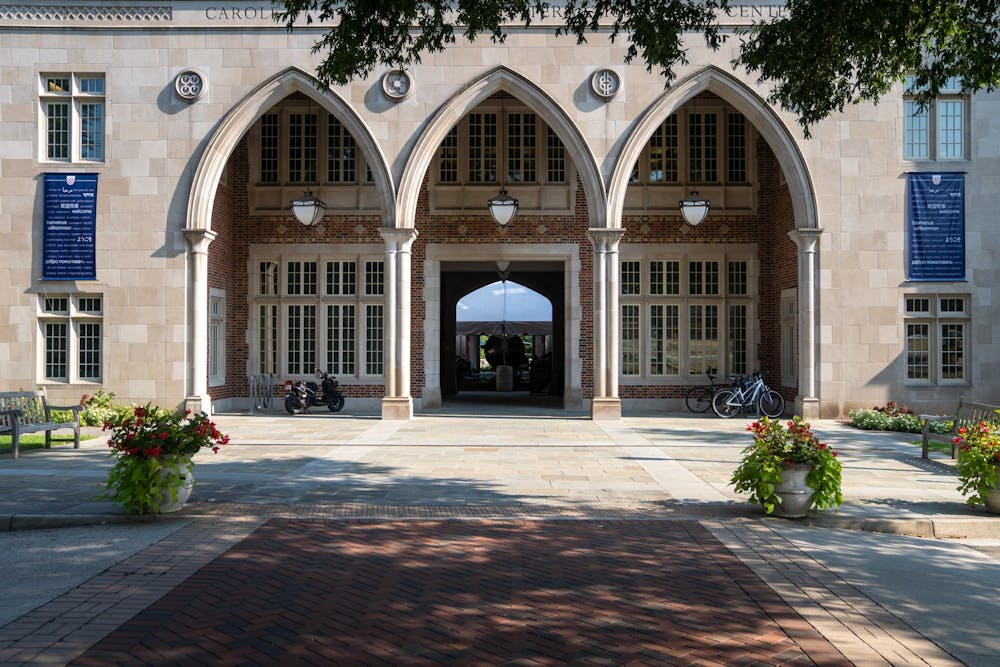Project Olas, a Spanish language learning start-up company, is the latest addition to the University of Richmond’s Latin American, Latino and Iberian studies department’s curriculum which incorporates community-based learning programs.
Project Olas started the day a garbage dump in Guatemala City was shut down by stressors caused by the COVID-19 pandemic, leaving 40,000 locals unemployed. Olas partnered with a non-profit, Creamos, to begin their work employing Guatemalan women as Spanish language teachers.
“Project Olas is a social impact start-up business started in spring 2020 by [freshmen] at Georgetown University when the COVID-19 pandemic hit,” UR junior Lily Miller, who interned with Project Olas’s communications team over the summer, wrote in an email to the Collegian on July 25.
The business trains and employs disadvantaged women living in Zona 3, an extremely poor neighborhood by Guatemala City’s garbage dump, to teach Spanish-language learners via Whatsapp, Miller wrote.
LALIS associate professor of Spanish Aurora Hermida-Ruiz explained the origins of the project, which had been started by Georgetown first-year student Rebecca Cox. Cox lost her mother at a young age. Then, at 16 years old, she studied abroad in Spain and stayed with a host family.
“The host mother became like her mother in a way,” Hermida-Ruiz said. She said that Cox had connected learning a second language with the personal connection she had forged while abroad.
Cox received $10,000 from the Georgetown Entrepreneurship Challenge to start Project Olas.
“Rebecca, at the time when I started to work with her, she was already able to feed 15 families,” Hermida-Ruiz said. Her class worked with one mother who had a teaching degree but was unable to work as a teacher, and whose kids were unable to attend school, Hermida-Ruiz added.
“Two professors used [one-on-one] sessions with Olas moms this past semester [...], a beginner course and a more advanced course,” Miller wrote.
Elizabeth Kissling, who taught LALIS 151 in the spring 2021 semester, said that her class had enjoyed this style of learning.
“During the first session, some people said they did not have quite enough to talk about,” Kissling said. “They just didn’t have enough vocabulary and fluency yet to speak for the full half an hour.”
She said that students had reported they had much more to talk about during the second session, once they had practiced their Spanish skills more.
Enjoy what you're reading?
Signup for our newsletter
“We predetermined what the topics of their conversations would be,” Kissling said. She explained that their Project Olas partner had the same list of questions as the one students prepared for.
Senior Ally Osterberg interned for Project Olas for her independent study credit, she said.
“I wanted to do something in the community, but it was hard to find options due to the pandemic,” Osterberg said. She said that Project Olas had been a great opportunity for her.
Osterberg was involved with Project Olas’s social media team that raised awareness for the humanitarian situation in Guatemala City and the ways Project Olas was helping the women affected by the pandemic.
“The U.S. team goes about it intentionally, we’re not doing this for them, we’re doing this with them,” Osterberg said.
Project Olas is a good model for social justice because it focuses on amplifying the voices of the Guatemalan women, she added.
Mariela Méndez, chair of the LALIS department, said that the department was taking small steps to implement Project Olas in all of the lower-level 300 courses and exchanges with students at Spanish-speaking universities in the 100- and 200-level courses.
“The difference between those first initial exchanges they have with students abroad, which are focused on language skills, and the ones with mothers from Olas, which of course are also focused on language skills, is that they are not speaking with their peers, and they are learning more about the culture, and socioeconomic situations,” Méndez said.
Miller hopes that the word about Project Olas will get out.
“I think it will be good for students at UR to hear about it,” Miller said.
Contact features writer Lillian Tzanev at lillian.tzanev@richmond.edu.
Support independent student media
You can make a tax-deductible donation by clicking the button below, which takes you to our secure PayPal account. The page is set up to receive contributions in whatever amount you designate. We look forward to using the money we raise to further our mission of providing honest and accurate information to students, faculty, staff, alumni and others in the general public.
Donate Now



